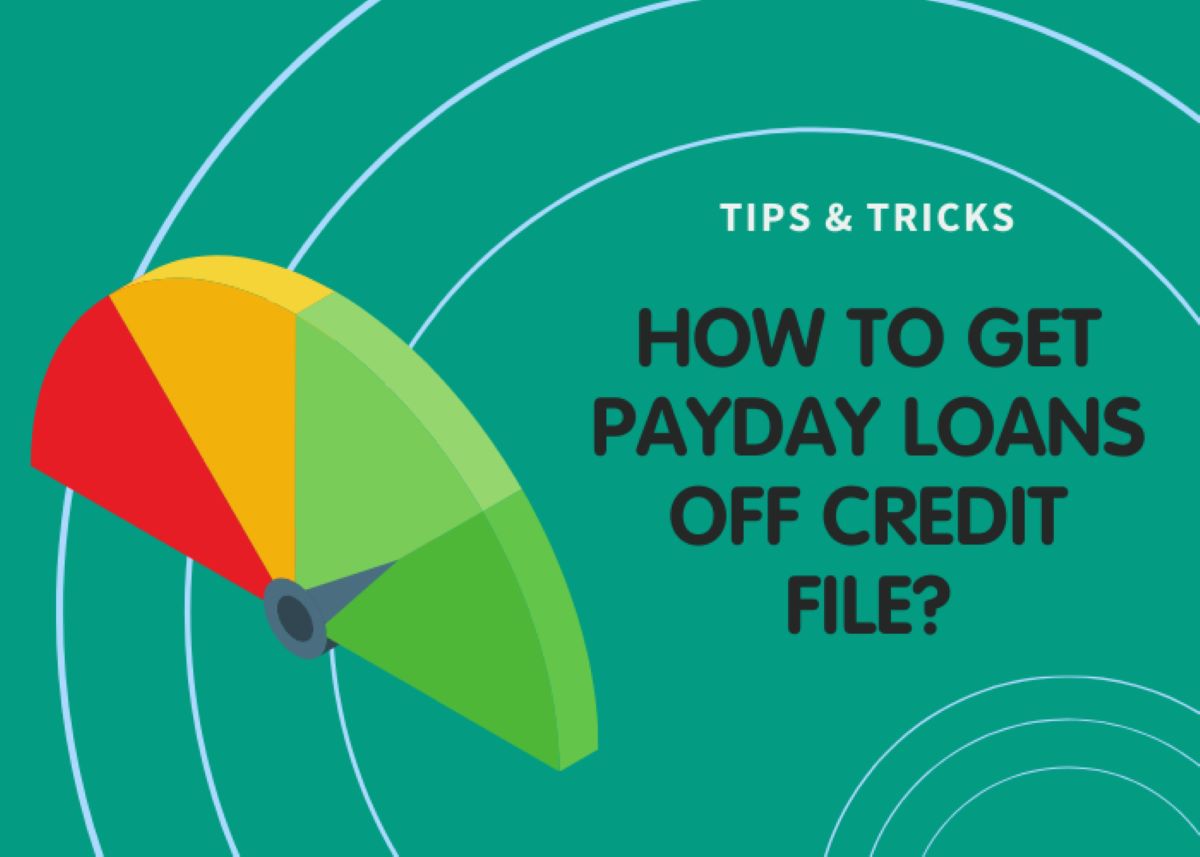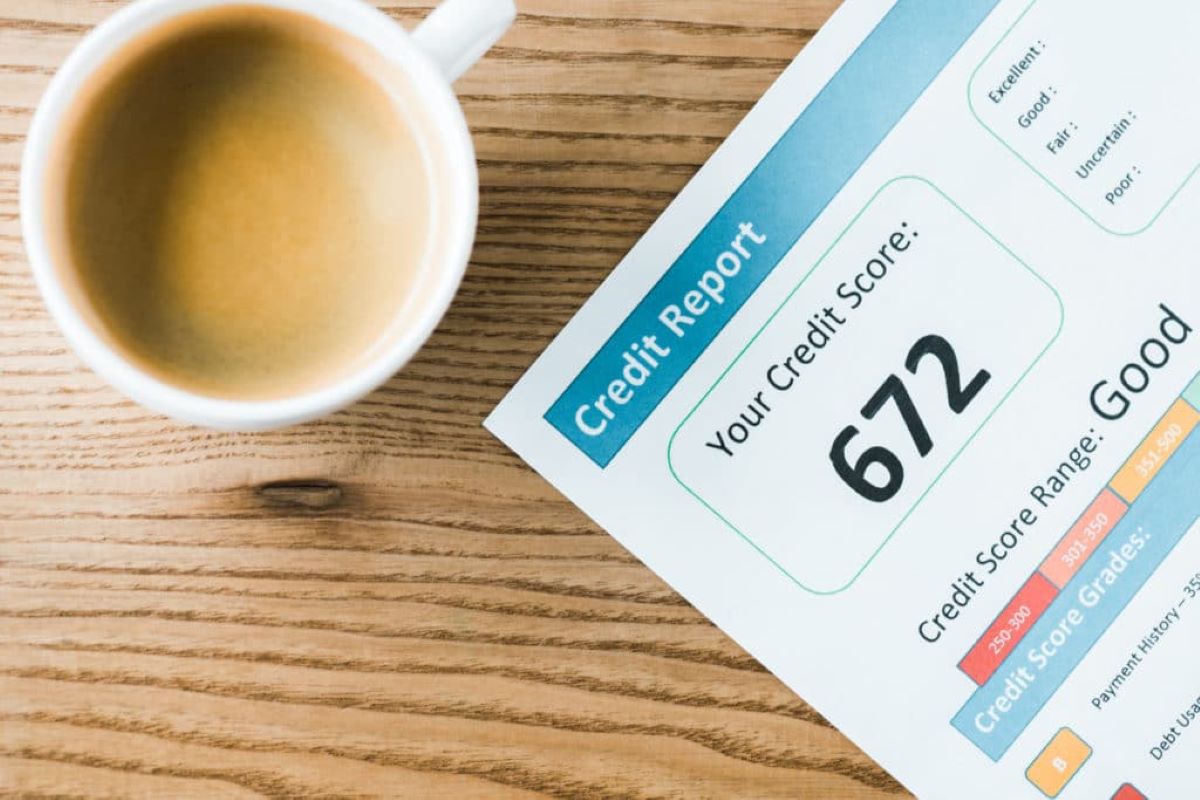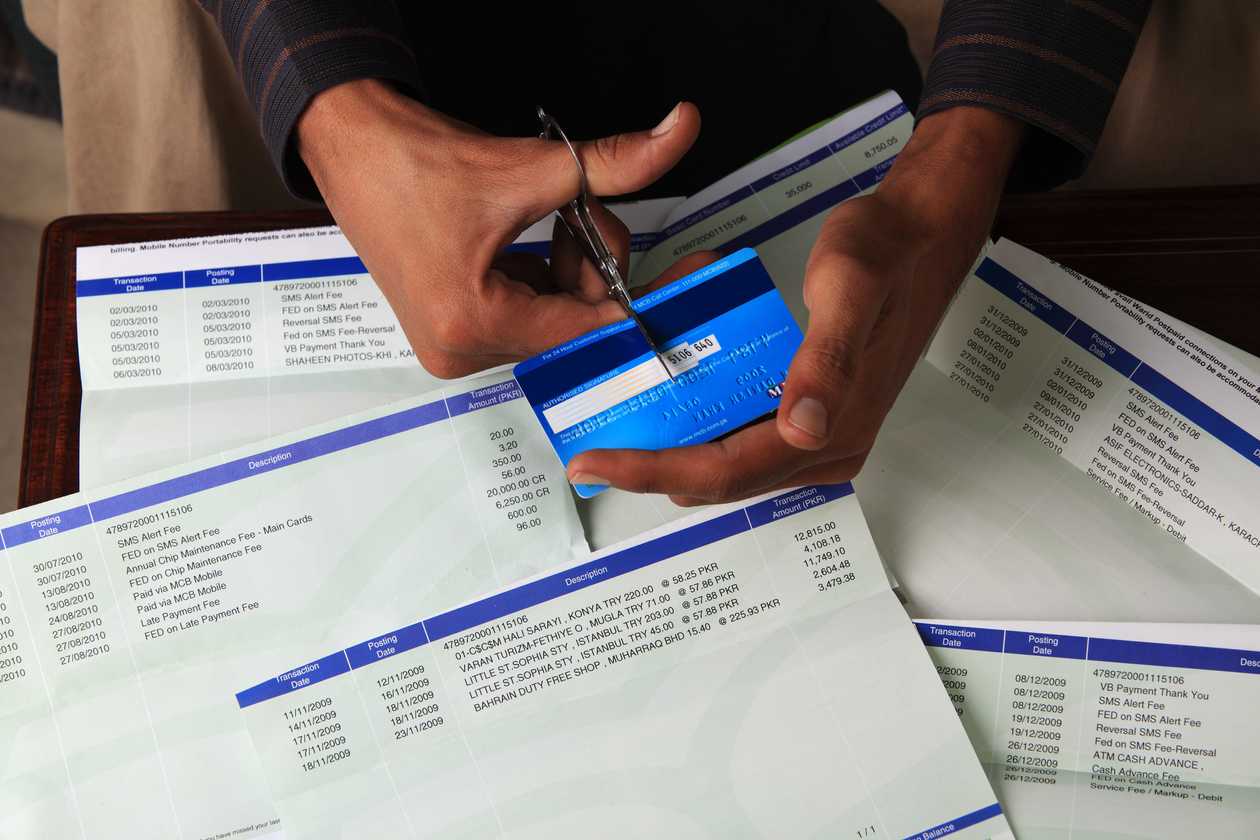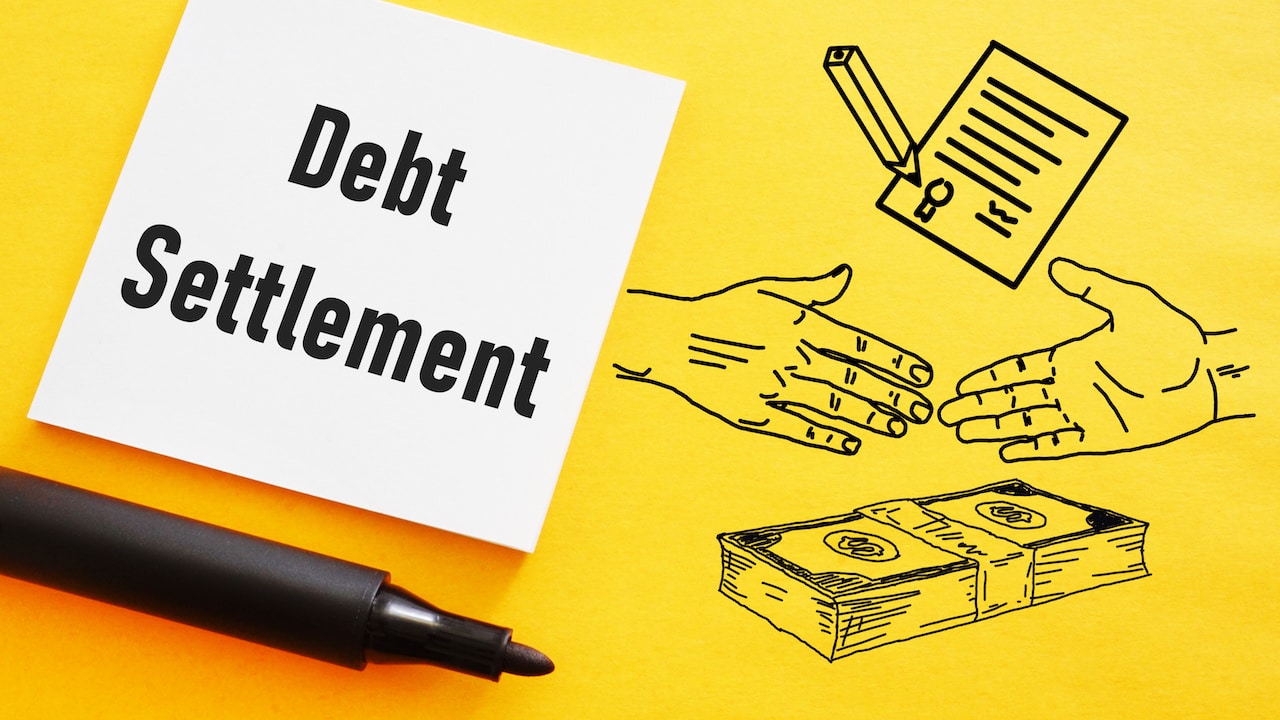Home>Finance>How Long Does A Payday Loan Stay On Your Credit


Finance
How Long Does A Payday Loan Stay On Your Credit
Modified: March 6, 2024
Discover how long a payday loan remains on your credit report and its impact on your overall finance. Plan your financial future wisely with this insightful guide.
(Many of the links in this article redirect to a specific reviewed product. Your purchase of these products through affiliate links helps to generate commission for LiveWell, at no extra cost. Learn more)
Table of Contents
Introduction
Payday loans can be a helpful financial tool in times of emergency, providing temporary cash flow to cover unexpected expenses. However, it’s important to understand the potential impact of payday loans on your credit score. While payday loans may not necessarily have a direct impact on your credit, there are certain factors that can affect how long a payday loan stays on your credit report.
In this article, we will delve into the world of payday loans and their relevance to your creditworthiness. We will explore how payday loans work, how they can impact your credit, and the duration for which they remain on your credit report. Additionally, we will discuss the factors that can influence the duration of a payday loan on your credit and provide strategies to improve your credit after taking out a payday loan.
Understanding the implications of payday loans on your credit is essential for making informed financial decisions. So, let’s dive in and explore the intricate relationship between payday loans and your credit score.
What is a payday loan?
A payday loan is a short-term, high-interest loan that is typically due on your next payday. It is designed to provide quick access to cash to cover unexpected expenses or bridge financial gaps until your next paycheck. Payday loans are usually characterized by their easy application process and fast approval, making them an attractive option for individuals in need of immediate cash.
To obtain a payday loan, you generally need to provide proof of income, such as pay stubs or bank statements, and a valid identification. The loan amount is usually a percentage of your income and varies depending on the lender. Payday loans come with high interest rates and fees, making them a costly form of borrowing.
Unlike traditional loans, payday loans do not require collateral or a comprehensive credit check. Instead, lenders typically rely on your income and employment status to determine your eligibility. This accessibility makes payday loans appealing to individuals with low credit scores or those who may not qualify for traditional loans.
It is important to note that payday loans are meant to be a short-term solution and should not be used as a long-term financial strategy. Due to their high interest rates and fees, failing to repay a payday loan on time can lead to a cycle of debt that is difficult to escape.
Now that we have a clearer understanding of what payday loans are, let’s explore how they can impact your credit.
How does a payday loan affect your credit?
Payday loans, in and of themselves, do not directly impact your credit score. This is because payday loan lenders typically do not report your loan activity to the credit bureaus, which are the entities responsible for maintaining your credit history. Therefore, taking out a payday loan and repaying it on time may not have any effect on your credit.
However, it is worth noting that if you fail to repay the payday loan and it goes into collections, this information can be reported to the credit bureaus and have a negative impact on your credit score. Late or missed payments can significantly lower your credit score and remain on your credit report for up to seven years. This negative mark can make it more difficult for you to obtain credit in the future and can even impact your ability to secure housing or employment.
Moreover, even if the payday loan itself does not directly impact your credit score, it can still affect your creditworthiness in other ways. For example, if you have a high debt-to-income ratio due to payday loans, it may make it harder for you to qualify for other loans, such as a mortgage or car loan.
In summary, while payday loans may not have an immediate impact on your credit score, failing to repay them can lead to negative consequences that can affect your creditworthiness in the long run. It’s crucial to manage your payday loans responsibly and ensure timely repayment to avoid damaging your credit.
How long does a payday loan stay on your credit?
The duration for which a payday loan stays on your credit report depends on several factors. Generally, negative information such as late payments or loan defaults can remain on your credit report for up to seven years. However, since payday loan lenders may not always report this information to the credit bureaus, the specific duration can vary.
In some cases, if the payday loan goes into collections and is reported to the credit bureaus, it can have a lasting impact on your credit report. The delinquent account can remain on your credit history for up to seven years from the date of the first delinquency, even if it is later paid off or settled.
It’s important to note that while the negative information associated with a payday loan can remain on your credit report for several years, its impact on your credit score may diminish over time. Lenders and credit scoring models tend to place more weight on recent credit behavior, so as time passes and you demonstrate responsible financial habits, the impact of a payday loan on your credit score may lessen.
However, it’s important to remember that each individual’s credit history is unique, and the specific duration for which a payday loan stays on your credit can vary. It is advisable to regularly check your credit report and address any inaccuracies or negative records that may be affecting your creditworthiness.
Next, let’s explore the factors that can influence the duration of a payday loan on your credit report.
Factors that may influence the duration of a payday loan on your credit
The duration for which a payday loan stays on your credit report can vary based on several factors. These factors can influence how long the negative information associated with the payday loan remains visible to lenders and impacts your creditworthiness. Here are some key factors to consider:
Reporting by the lender:
Not all payday loan lenders report to the credit bureaus. Some lenders may choose not to report your loan activity, while others may only report if there is a delinquency or default. If your lender does not report the payday loan to the credit bureaus, it may not have any impact on your credit report.
Delinquency status:
If you fail to repay the payday loan on time and it goes into collections, the delinquent account can have a lasting impact on your credit report. Delinquent accounts typically remain on your credit history for up to seven years from the date of the first delinquency, even if the account is later resolved or paid off.
Payment history:
Your payment history is one of the most important factors in determining your creditworthiness. Consistently making on-time payments on your payday loan can help mitigate the negative impact on your credit. As time passes and you demonstrate responsible payment behavior, the impact of the payday loan on your credit score may lessen.
Dispute resolution:
If you believe there are errors or inaccuracies on your credit report related to a payday loan, you have the right to dispute the information with the credit bureaus. If the dispute is successful, the negative information may be removed from your credit report, which can positively impact your creditworthiness.
Other credit factors:
It’s important to remember that the duration of a payday loan on your credit report is just one aspect of your overall credit history. Other factors, such as your credit utilization, length of credit history, and the presence of any other negative marks, can also influence how lenders perceive your creditworthiness.
It’s important to regularly monitor your credit report and ensure its accuracy. By understanding the factors that can influence the duration of a payday loan on your credit report, you can take proactive steps to manage your credit wisely and improve your overall financial health.
Impact of a payday loan on your credit score
The impact of a payday loan on your credit score can vary depending on how you manage the loan and your payment history. While payday loans themselves may not have a direct impact on your credit score, certain factors associated with payday loans can influence your creditworthiness:
Payment history:
Your payment history is a crucial factor in determining your credit score. Making timely payments on your payday loan can positively impact your credit score, demonstrating responsible borrowing behavior. Conversely, late or missed payments can have a negative impact and lower your credit score.
Credit utilization ratio:
Your credit utilization ratio is the amount of credit you are utilizing compared to your available credit limit. Taking out a payday loan can increase your overall debt, which in turn can increase your credit utilization ratio. High credit utilization can negatively impact your credit score, so it’s important to manage your borrowed funds responsibly and avoid excessive debt.
Additional borrowing:
If you have multiple payday loans or other outstanding debts, lenders may perceive you as financially overextended. This can negatively impact your credit score and make it more difficult to obtain additional credit in the future.
Credit inquiries:
When applying for a payday loan, the lender may perform a hard credit inquiry, which can temporarily lower your credit score. Multiple hard inquiries within a short period of time can raise concerns for lenders, as it suggests you may be in need of significant amounts of credit.
Overall credit health:
While payday loans may not have a significant impact on your credit score individually, they can be a reflection of your overall credit health. Lenders may view repeated payday loan usage as a sign of financial instability, which can impact their decision to extend credit to you in the future.
It’s important to practice responsible borrowing and only take out payday loans when absolutely necessary. Make timely payments to avoid negative impacts on your credit score. If you find yourself reliant on payday loans, it may be beneficial to seek financial counseling to explore alternative options and improve your overall credit health.
How to improve your credit after a payday loan
If you’ve taken out a payday loan and want to improve your credit, there are steps you can take to rebuild your creditworthiness. Here are some strategies to help you improve your credit after a payday loan:
Pay off outstanding debts:
In addition to the payday loan, focus on paying off any other outstanding debts you may have. Consistently making on-time payments demonstrates responsible borrowing behavior and can positively impact your credit score.
Create a budget:
Develop a budget to manage your finances effectively and ensure you have enough funds to cover your monthly expenses and loan repayments. A budget can help you avoid late or missed payments and keep your credit in good standing.
Utilize a secured credit card:
A secured credit card is an excellent tool for rebuilding your credit. With a secured card, you provide a security deposit as collateral, which serves as your credit limit. Make small purchases and pay off the balance in full each month to establish a positive payment history and improve your credit score.
Monitor your credit report:
Regularly check your credit report for any inaccuracies or errors that may be impacting your credit score. Dispute any incorrect information with the credit bureaus to have it corrected or removed from your report.
Practice responsible borrowing:
Avoid taking on additional debt unless absolutely necessary. Pay your bills on time, keep your credit utilization low, and maintain a good payment history to demonstrate your creditworthiness to potential lenders.
Seek professional guidance:
If you’re struggling to improve your credit after a payday loan, consider seeking assistance from a reputable credit counseling agency. These professionals can provide guidance on debt management, budgeting, and strategies to rebuild your credit.
Time and patience:
Remember that rebuilding your credit takes time and patience. As you consistently make positive financial choices and demonstrate responsible financial behavior, the impact of a payday loan on your credit score will lessen over time.
Improving your credit after a payday loan requires dedication and commitment. By implementing these strategies and practicing responsible financial habits, you can rebuild your creditworthiness and set yourself on a path towards a stronger financial future.
Conclusion
Payday loans can offer temporary financial relief in times of need, but it’s crucial to understand their potential impact on your credit. While payday loans may not directly affect your credit score, late or missed payments can result in negative marks on your credit report. The duration of a payday loan on your credit report can vary, with negative information typically lasting up to seven years.
Factors such as reporting by the lender, delinquency status, payment history, and other credit factors can influence how long a payday loan stays on your credit report. It’s important to regularly monitor your credit report, address any inaccuracies, and make timely payments to minimize the impact on your credit score.
To improve your credit after a payday loan, focus on paying off outstanding debts, creating a budget, and practicing responsible borrowing. Utilizing a secured credit card, monitoring your credit report, seeking professional guidance, and being patient can also help rebuild your creditworthiness and demonstrate your ability to manage your finances effectively.
Remember, rebuilding your credit takes time and effort. By taking proactive steps and making responsible financial decisions, you can improve your credit post-payday loan and pave the way for a healthier financial future.














